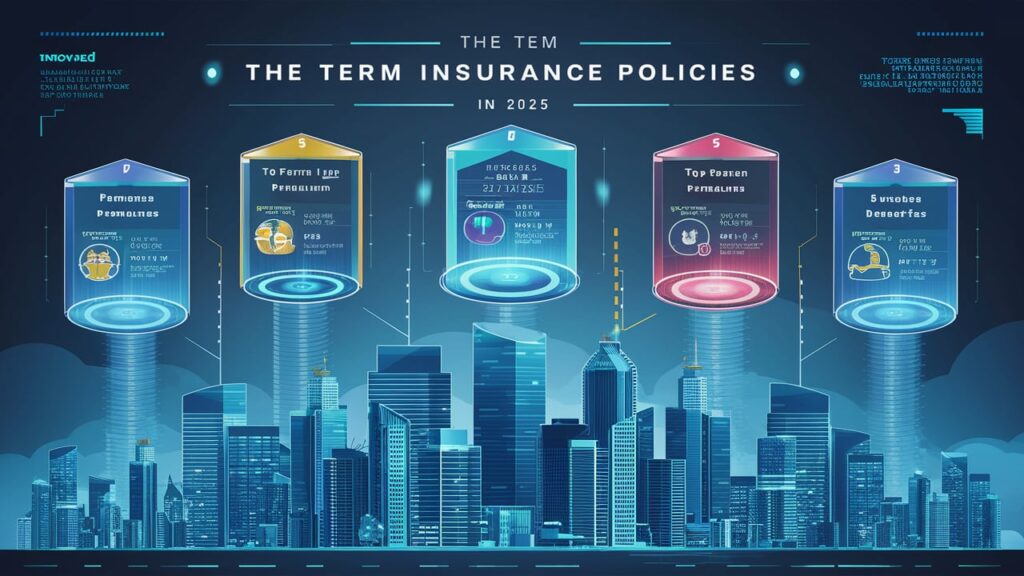Choosing between term and whole life insurance is a decision that can impact your financial future. Each option offers unique benefits and drawbacks depending on your personal goals. Understanding how both policies work will help you select the right plan. The right insurance can secure your family and safeguard your long-term investments.
What is Term Life Insurance?
Term life insurance provides coverage for a fixed number of years. It pays a death benefit only if the insured dies during the policy term. This option works well for people seeking affordable protection for specific financial needs such as paying off a mortgage or funding a child’s education.
What is Whole Life Insurance?
Whole life insurance covers the policyholder for their entire life. It also builds cash value over time. You can borrow from or withdraw this accumulated cash. Whole life is a good choice if you want lifelong protection and a savings component to support long-term financial plans.
Want to know what your policy protects? Read What Does Homeowners Insurance Actually Cover? and compare it with What Does Renters Insurance Actually Cover?. Also check the Best and Worst Homeowners Insurance Companies before you choose a provider.
Explore the Difference Between HMO and PPO and compare Term vs Whole Life Insurance. For drivers check Auto Insurance Quotes or find the Best Full Coverage Auto Insurance in 2025. Visit Insurance.com for more insights.
Key Differences Between Term and Whole Life Insurance
Duration of Coverage
Term life insurance ends after a set number of years. If you outlive the term the policy expires without value. Whole life insurance remains active for your entire life as long as you pay the premiums. This makes it more suitable for those who want lifelong coverage.
Premium Costs
Term life insurance usually has lower premiums. It is more affordable because it offers temporary protection. Whole life insurance has higher premiums. However it provides permanent coverage and includes a savings element which justifies the cost for many policyholders.
Cash Value Component
Whole life insurance includes a cash value that grows over time. This money can be borrowed or withdrawn. Term life insurance does not have any cash value. It serves only as pure protection against the loss of income due to death.
Flexibility and Options
Term insurance offers straightforward options. It is easy to understand and manage. Whole life insurance offers additional features such as dividends and the ability to take loans. These features provide more flexibility for financial planning.
Ideal Use Cases
Term life insurance is ideal for temporary needs like paying off debts or replacing income. Whole life insurance fits long-term goals like estate planning or creating a financial legacy. Choose based on your current and future needs.
Pros and Cons of Term and Whole Life Insurance
| Feature | Term Life Insurance ✔⃣ | Whole Life Insurance ✔⃣ |
|---|---|---|
| ✔ Cost | Affordable premiums | Expensive but builds value |
| ✔ Duration | Fixed term coverage | Lifetime coverage |
| ✔ Cash Value | No cash value | Builds cash value |
| ✔ Simplicity | Easy to understand | More complex with added features |
| ✔ Suitability | Best for short-term goals | Best for long-term financial plans |
How to Choose the Right Policy
Consider Your Budget
If you need low-cost coverage term life is the better choice. It offers protection at a price that fits most budgets. Whole life is more expensive but suitable if you can manage the higher payments for permanent coverage.
Assess Your Long-Term Goals
For short-term goals term insurance works best. If you plan for estate protection or leaving a legacy whole life insurance aligns with your goals. Evaluate your needs before choosing a policy that matches your future objectives.
Think About Your Family’s Needs
Young families benefit from term life insurance. It covers financial responsibilities like mortgages and education. Whole life suits individuals who want to ensure their family receives support no matter when they pass away.
Review Your Financial Plans
If you already have investments and savings term life adds extra protection. If you lack a solid savings plan whole life can act as a dual tool for coverage and saving. Make sure the policy fits within your overall strategy.
Look at Policy Riders
Both types offer add-ons called riders. Riders enhance coverage such as adding critical illness or accidental death benefits. Compare the options available under each type to see which better fits your needs.
Benefits of Choosing Term Life Insurance
- Simple to understand and purchase
- Cost-effective for most households
- Matches with specific short-term financial goals
Benefits of Choosing Whole Life Insurance
- Guaranteed death benefit for life
- Accumulates cash value over time
- Offers loans and dividends with some policies
When to Switch From Term to Whole Life
Some insurers allow you to convert term insurance to whole life. This switch can help if your financial situation improves. It gives you lifelong protection without going through a new medical exam. Make sure to check conversion deadlines in your term policy.
Mistakes to Avoid When Choosing Life Insurance
Ignoring Your Actual Needs
Do not buy a policy just because it is cheaper or marketed better. Your choice should reflect your actual life situation. Assess your financial needs carefully to ensure you get the right coverage.
Overlooking Policy Terms
Some term policies have limitations. Understand the fine print such as renewal conditions and conversion deadlines. For whole life know how the cash value works and when you can access it.

Forgetting to Reassess Regularly
Life changes such as marriage or a new job affect your insurance needs. Review your policy regularly. Update coverage amounts or switch types as necessary to keep up with your current lifestyle.
Term vs Whole Life Insurance for Seniors
Term life may not be ideal for seniors as it may expire before the policy is used. Whole life offers guaranteed benefits and builds value. Seniors seeking final expense coverage or estate planning often choose whole life for peace of mind.
Young Adults and Life Insurance Choices
Young people can benefit from buying term insurance early. It is low cost and provides high coverage during key earning years. However those with long-term planning in mind may opt for whole life to build value over decades.
Using Life Insurance for Estate Planning
Whole life is an excellent tool for estate planning. It ensures your heirs receive benefits tax-free. You can also use the cash value as a living benefit. This makes it attractive for individuals with larger estates or complex financial needs.
Business Owners and Life Insurance
Business owners use whole life insurance for buy-sell agreements and to fund retirement plans. Term life may cover key employees temporarily. Choose the type that matches your business goals and continuity plans.
Internal Link Reference
To learn more about other types of insurance and how they impact your financial future visit Best Insure Info (https://lahoribooks.com/). The site offers resources that can help you choose the best policy based on your goals and budget.
✔ Frequently Asked Questions
✔ What happens if I outlive my term life insurance policy?
✔ Can I borrow money from my term life insurance?
No you cannot. Term life insurance does not build any cash value. Only whole life insurance allows you to borrow or withdraw money from the accumulated savings component.
✔ Is whole life insurance worth the higher cost?
Yes it can be for people seeking long-term protection and savings. The policy provides lifelong coverage and financial benefits like dividends and loans. Assess your financial goals before deciding.
✔ Can I convert my term policy to whole life later?
Yes many term policies offer a conversion option. You can switch to a permanent plan without a medical exam. Always review the policy terms and conversion window carefully.
✔ Which is better for young families term or whole life?
Term life is usually better for young families. It provides affordable coverage during high-responsibility years. Whole life might suit those who can afford higher premiums and want to build long-term savings.
Final Thoughts
Choosing between term and whole life insurance depends on your budget goals and future plans. Term life suits those needing affordable temporary coverage. Whole life supports lifelong security and savings. Review your needs and consult a licensed agent to make the best decision.






